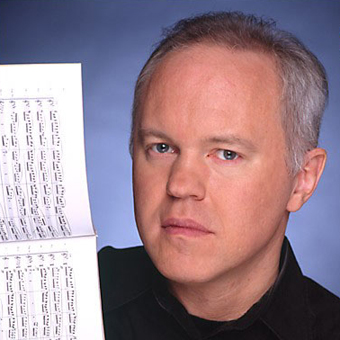

|
Michael Torke was born September 22, 1961, in Milwaukee,
Wisconsin, where he attended Wilson Elementary School, graduated from Wauwatosa
East High School, and studied at the Eastman School of Music with Joseph Schwantner and
Christopher Rouse,
and at Yale University. (Names which are links in this box and throughout
this webpage refer to my interviews elsewhere on my website. BD) Beginning his career with exclusive contracts with Boosey and Hawkes, and Decca Records, he now controls his own copyrights and masters through his publishing company, Adjustable Music, and record company, Ecstatic Records. Many of his earlier recordings which appeared on the Argo label have been re-issued on Ecstatic. His music has been called "some of the most optimistic,
joyful and thoroughly uplifting music to appear in recent years" (Gramophone).
Hailed as a "vitally inventive composer" (Financial Times) and "a master
orchestrator whose shimmering timbral palette makes him the Ravel of his
generation" (New York Times), Torke has created a substantial body of works
in virtually every genre. One of Torke's most frequently performed orchestral pieces is Javelin (1994), a "sonic olympiad" commissioned by the Atlanta Committee for the Olympics in celebration of the Atlanta Symphony Orchestra's 50th anniversary season. In the spring of 1996, two different recordings of Javelin were simultaneously released (a rare occurrence for a contemporary composition). The first recording, featuring the Atlanta Symphony Orchestra under Yoel Levi, was the fourth all-Torke CD to be released by Decca's Argo label. The second recording is on Sony Classical's Summon the Heroes, the official centenary Olympics album featuring the Boston Pops conducted by John Williams, which reached the Number One position on Billboard's Classical Crossover chart.
Strawberry Fields, a one-act opera
jointly commissioned by Glimmerglass Opera, New York City Opera, and WNET's
"Great Performances" television program (PBS) made its debut at Glimmerglass
to widespread critical acclaim. Four Seasons, a 62-minute
symphonic oratorio for vocal soloists, two choruses, and large orchestra
was commissioned by The Disney Company in celebration of the new millennium.
Kurt Masur conducted
the New York Philharmonic in the work's premiere. In 1997 Torke was appointed the first Associate
Composer of the Royal Scottish National Orchestra. One of the first highlights
of his residency came in March 1999 with the U.K. premiere of Book of
Proverbs. The orchestra also commissioned two new works: Rapture,
a percussion concerto for the young Scottish percussionist Colin Currie,
and An American Abroad, a tone-poem that made its debut in
February 2002 under the baton of Marin Alsop.
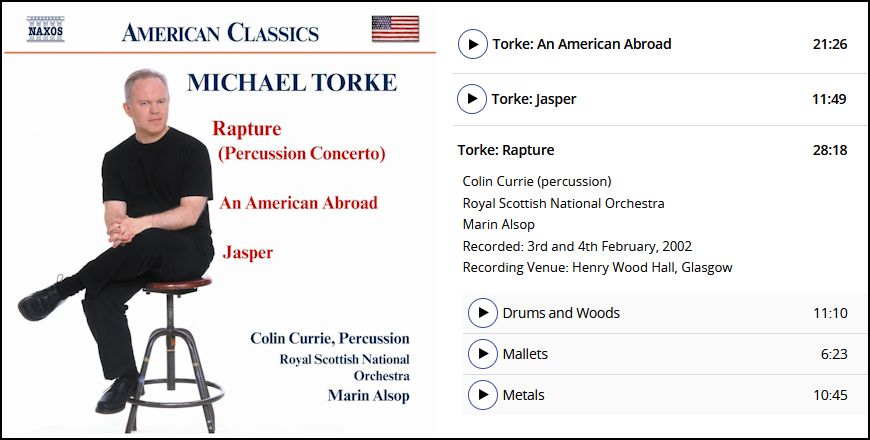
|
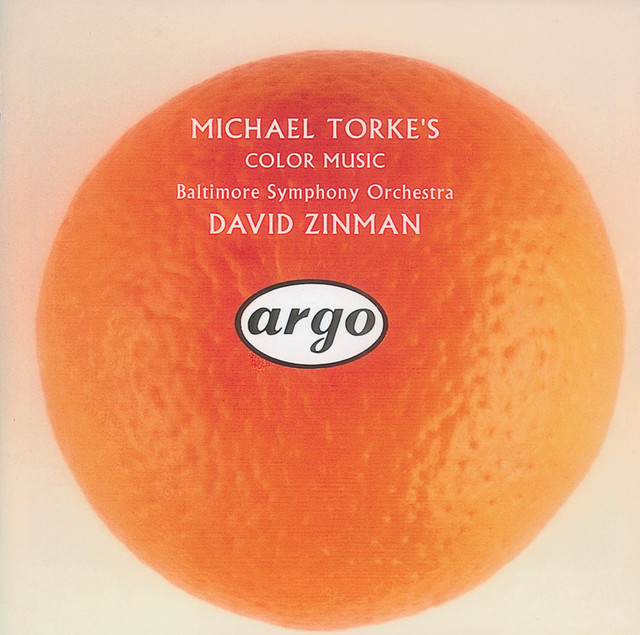 Torke: In a way, yes.
Torke: In a way, yes.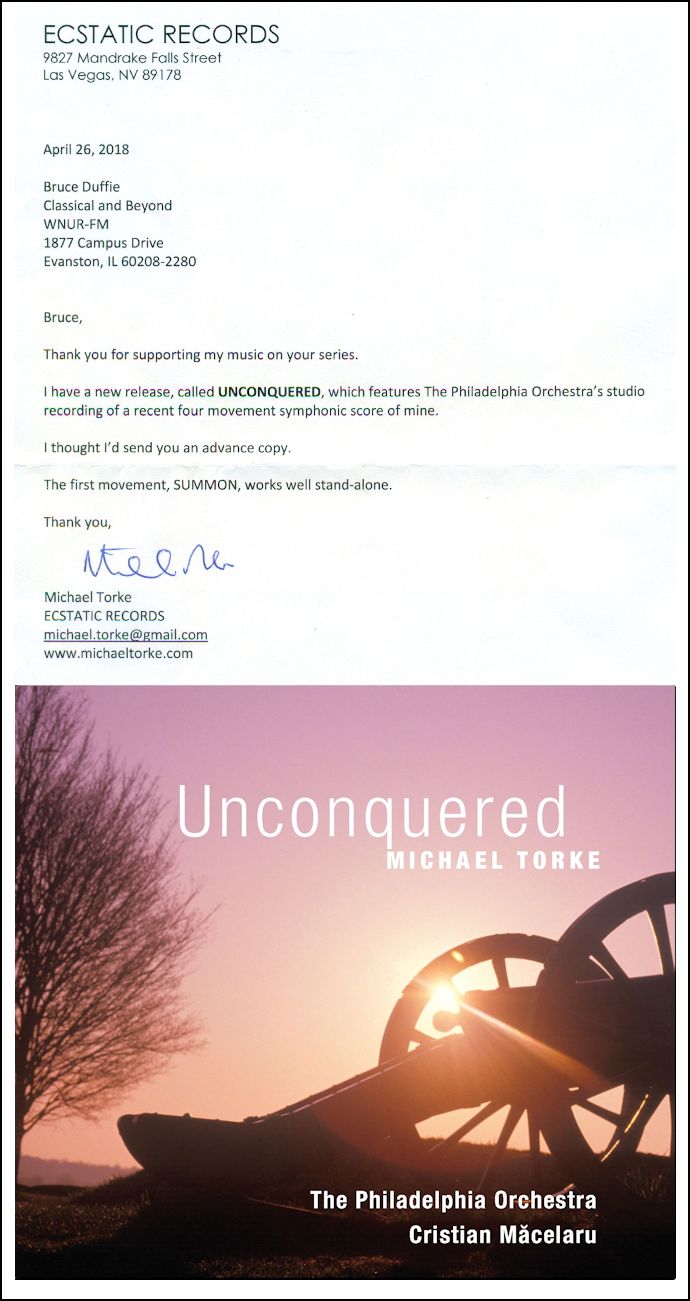
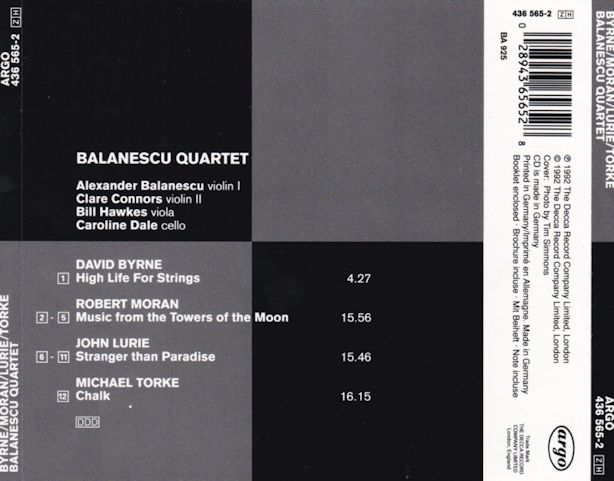
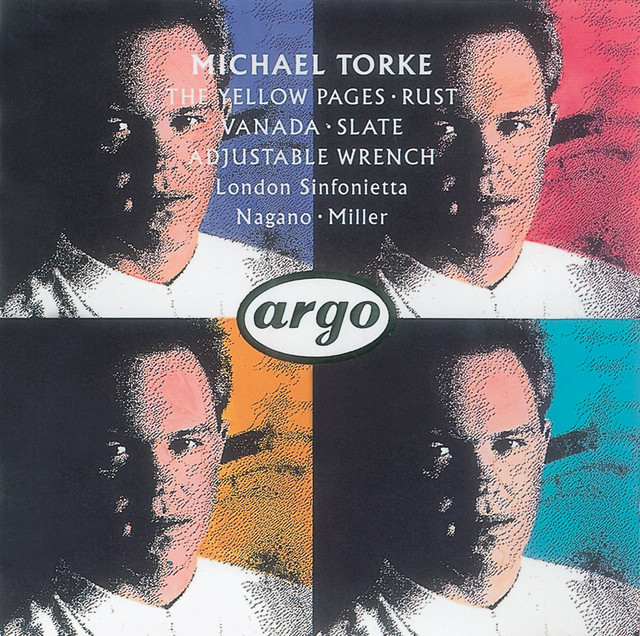
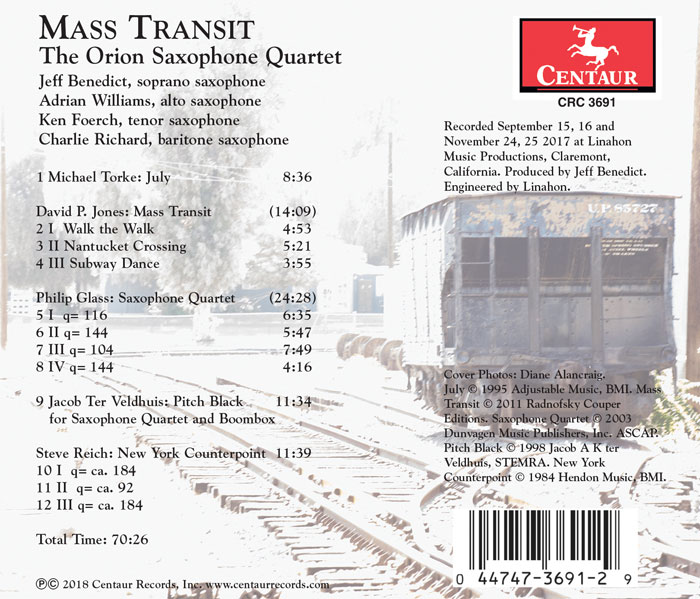
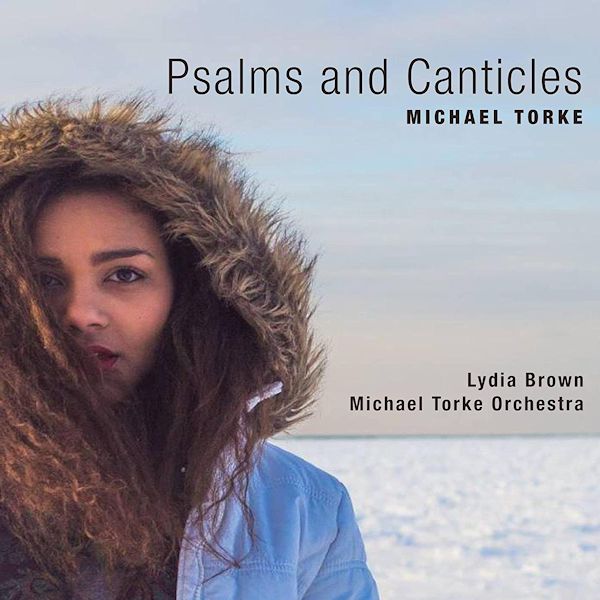
© 1988 Bruce Duffie
This conversation was recorded in Chicago on June 2, 1988. Portions were broadcast on WNIB in 1993; and on WNUR in 2002, 2005, and 2017. This transcription was made in 2021, and posted on this website at that time. My thanks to British soprano Una Barry for her help in preparing this website presentation.
To see a full list (with links) of interviews which have been transcribed and posted on this website, click here. To read my thoughts on editing these interviews for print, as well as a few other interesting observations, click here.
Award - winning broadcaster Bruce Duffie was with WNIB, Classical 97 in Chicago from 1975 until its final moment as a classical station in February of 2001. His interviews have also appeared in various magazines and journals since 1980, and he now continues his broadcast series on WNUR-FM, as well as on Contemporary Classical Internet Radio.
You are invited to visit his website for more information about his work, including selected transcripts of other interviews, plus a full list of his guests. He would also like to call your attention to the photos and information about his grandfather, who was a pioneer in the automotive field more than a century ago. You may also send him E-Mail with comments, questions and suggestions.